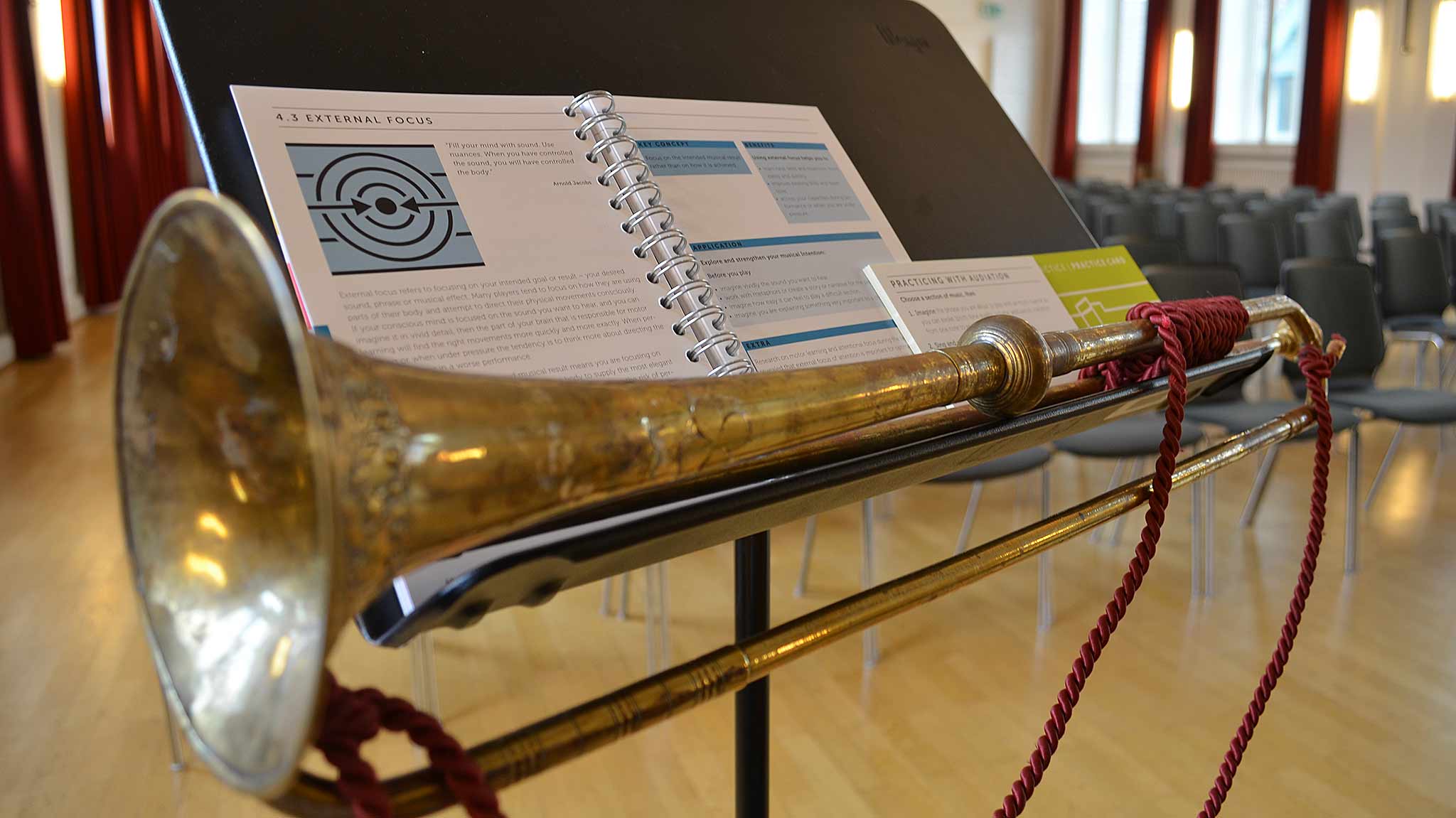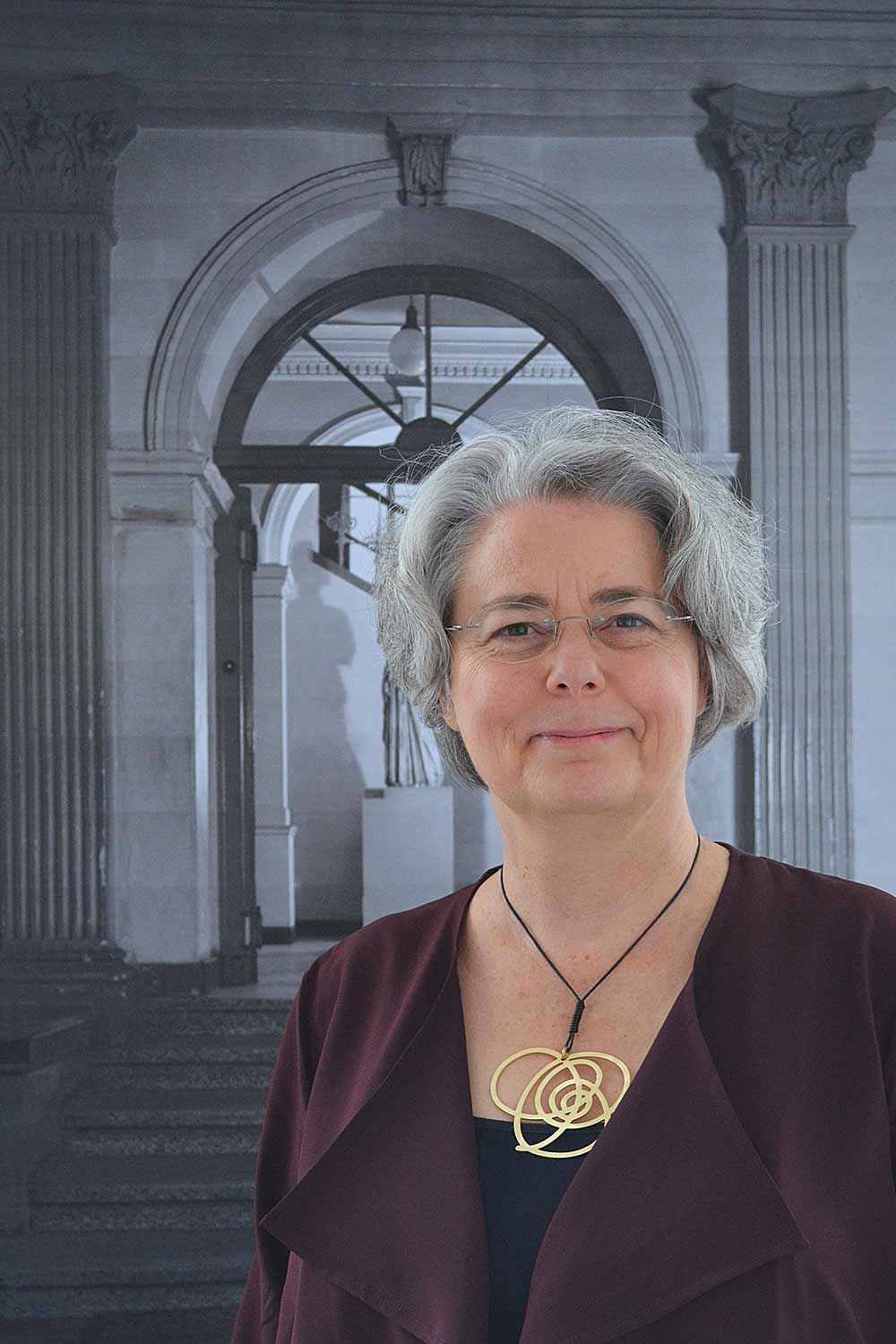
Susan Williams
»Performing, teaching, coaching and researching are all important for me and they all inform each other.«
Susan Williams started her musical career in her homeland Australia and moved to Europe, where she specialised in the natural trumpet. Since then she has performed world wide and recorded with many of Europe’s finest early music ensembles, including Collegium Vocale Gent, Les Arts Florissants, Anima Eterna, Musiciens du Louvre, Al Ayre Espagnol, Les Agremens, Elbipolis, Concerto con Anima and Les Amis de Philippe. She founded the trumpet ensemble Clarini and was co-founder of the Bachisches Collegium Bremen.
»I have always been fascinated by questions related to what helps an individual excel at something.
A teacher’s job is to enable each student to become not only a competent but also an authentic musician.«
Susan teaches at the Royal Conservatoire of The Hague as well as the University of The Arts Bremen. She teaches not only trumpet but also courses in performance science and coaches masters research. Her methods are based on the belief that every individual is capable of excellence given the right motivation and practice.

Research
»Doing research has both challenged and illuminated many of my intrinsic beliefs.«
Susan is presently doing doctoral research on what kind of attentional focus can enhance learning and performance for musicians. Her book ‘Quality Practice’ was released in 2017. She gives regular seminars, lectures and workshops on themes related to practice and performance preparation.

Abstract doctoral research
External Focus
Using external focus of attention for practicing and performing music
Playing music is about doing and not knowing. A musician’s art is dependent on the complex motor control that is learnt over years of practice. This research is concerned with the question: ‘What kind of focus facilitates optimal learning and performance?’
According to Gabriele Wulf, external focus – the focussing of attention on the intended effect of one’s movements has been found to be a better way to learn complex motor control than internal focus – focussing on directing the body’s movements (Wulf, 2013). The research supporting this claim, challenges the way many people are taught and the way many people practice. More knowledge on why external focus is helpful for musicians needs to be available for teachers and musicians so it can be applied in music schools and conservatoires.
The aim of this research is to have a better understanding of the processes involved in the learning of motor skills for music making, and to develop and investigate tools for learning and performing music that are based on focusing on musical intention.
Keywords: external focus, musicians’ learning and performance, complex motor skills for musicians
Details and results of this research will come soon!
Listen
Here are a few examples of my favourite music-making moments.
Suite in D (1st movement)
Aria »Anche virtù e bellezza«
Aria »Schon hör ich die Posaune schallen«
Sonata in G minor
Aria »Suonin‘ le trombe«
»The fife and harmony of war«
Balletto detto Lo Squiletti
Aria from BWV 43 »Er ists, der ganz allein«
»Tu devicto mortis aculeo«
Aria »Ich bringe dir die Farren meiner Lippen«
Aria from BWV 43 »Ach, Es Bleibt in Meiner Liebe«
Concerto á VII Clarini (1st Movement)
»I love to design projects that feature the natural trumpet in different contexts and even crossing genres and art forms.«
The project ‘Creation’ illustrates the creation myth through sound. It begins with a section called ‘Origins’ starting with the ‘one tone’ – represented by the didgeridoo (played by virtuoso Jeremy Donovan). This ground tone is then joined by a rhythmic pulse and then overtones from the trumpets and culminates in an ecstatic burst of harmony: the concerto for 7 trumpets and timpani by Altenburg. The second section of the production – entitled ‘the dance’, features baroque dance music written for natural trumpets. The third section ‘music of the spheres’ features a work commissioned by Clarini from composer Elena Kats- Chernin. The production ends with ‘return’: and improvised section where overtones return once more to the original ground tone and the ‘last breath’. The entire program can be heard on the CD ‘Creation’. A video clip of excerpts from this production can be seen here.


